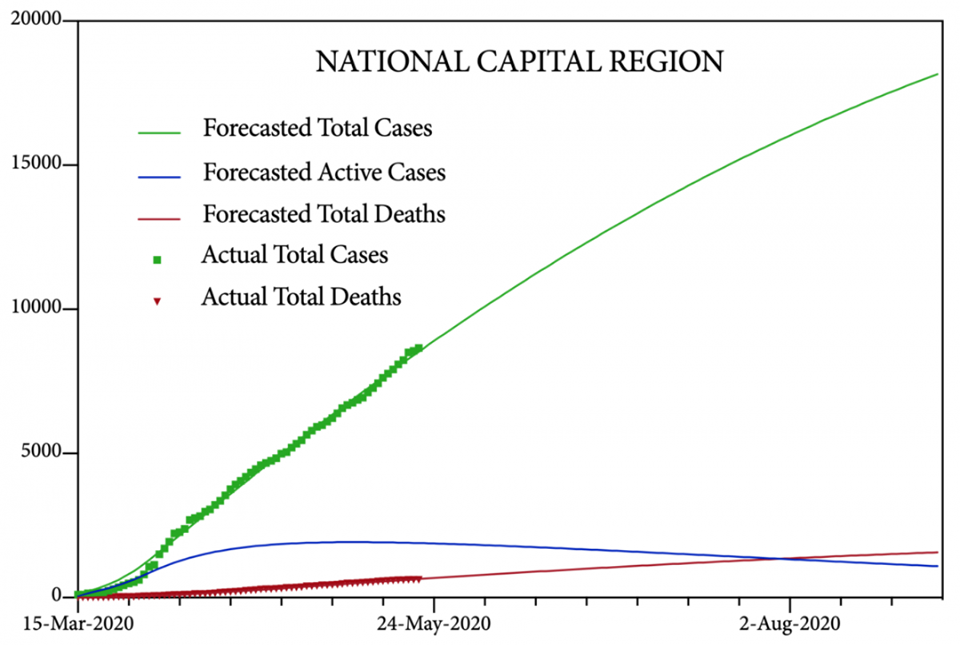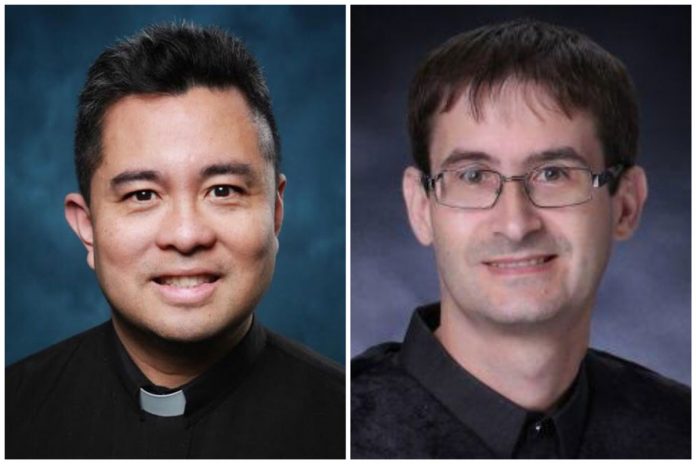PUBLIC HEALTH authorities should boost contact tracing to contain the Covid-19 outbreak in two major hotspots: Manila and Quezon City, UST researchers said.
Fr. Nicanor Austriaco O.P. and Assoc. Prof. Bernhard Egwolf, in a research note published on the University website, said cases in Manila and Quezon CIty were projected to “gradually keep increasing” in the coming months unlike in Makati, Mandaluyong, and Parañaque, which could expect a plateau by July, August and September, respectively.
They warned that coronavirus cases would increase further with quarantine measures set to be relaxed in June, based on projections of the “UST CoV-2” epidemiological model.
“It is not clear why the ECQ has not been as effective in both the City of Manila and Quezon City as it has been in their neighboring municipalities, especially since the local authorities have worked hard to suppress their infection rates,” Austriaco and Egwolf said.
“They are not the top two most dense cities in the NCR (National Capital Region) so it is unlikely to be explained by appealing to population density alone,” they added.
The researchers recommended hiking Metro Manila’s testing capacity to 15,000 per day and the deployment of at least 1,800 contact tracers to curb the Covid-19 outbreak.
The geographic distribution of the tests and contact tracing should correspond to the severity of the local outbreaks in Metro Manila, they said.

“[T]he model predicts that the total number of cases in Metro Manila will continue to increase gradually and will not plateau for many months,” Austriaco and Egwolf warned.
The UST researchers noted that early implementation of the enhanced community quarantine (ECQ) in March saved thousands of lives and seemed to have flattened the curve of Covid-19 cases, but in a way that was “not dramatic.”
The UST CoV-2 model is based on the DELPHI model of the Massachusetts Institute of Technology, an analytics tool used to create epidemiological models in order to forecast infections, hospitalizations and deaths.
Egwolf is a biophysicist and professor at the Department of Mathematics and Physics while Austriaco is a professor of biology and of theology at the Dominicans’ Providence College in Rhode Island.
Austriaco is also a fellow of the UST Center for Religious Studies and Ethics.















